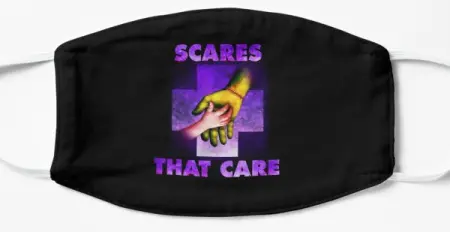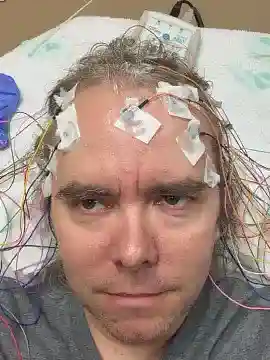Images via Thibault Trillet & Anna Shvets
We all experienced the same pandemic in 2020 and 2021, but none of us experienced it exactly the same way. Our personal health, our family situations, our financial and professional circumstances, our politics, our involvement in social media, our geography, and a million other factors changed what we saw, what we did, what we perceived, and how we processed it all. All of these variables impacted how we viewed one another and how we treated each other.
Two Great Fears
We cover our fears in philosophies, principles, and beliefs. We explain our emotional responses and impulse decisions with our best version of reason after the fact. The truth is we are afraid and angry about a lot of things through different phases of our lives. These emotions pull ahead of our reason much of the time and we justify our choices and compromises to preserve our egos. There is a debate to be had about whether social media has caused this very human tendency to become more pronounced, certainly more public.
Nothing about us anymore is free from definition by politics and party affiliation. Still, our responses to the pandemic can be defined by two great fears. Fear of the health risk and fear of the economic impact. Whichever fear was strongest for you, that largely defined your responses and developing positions after the fact.
If you feared the health risk of the virus more, you leaned into the precautions and shutdown procedures to mitigate that risk and the spread. There was science to support this position, of course. It did not change the reality that there was an economic cost felt by some more than others.
If you feared the economic impact more, if that cost impacted you more directly, you might have seen the precautions as a bigger threat to you, your family, and your future during the virus.
Both fears were legitimate. Both had foundation. Not all responses to those fears were legitimate or productive for reaching viable solutions. Nothing else quite has the volatile potential in the hands of those seeking political power as fear does.
As a kidney transplant patient on immuno-suppression medications, my great fear was the health risk. While I understood those coming from a place of economic fear, I found their dismissals, their insults, and their pushback hurtful whether it was meant to be or not.
The reality is that most people reading this were never consulted for their opinions by anyone in power. None of us were in a position to make the calls for our whole state or country. Nothing we said or did influenced the policy on a macro level. With no outlet for our frustrations, we turned it on each other instead. In doing so, no one got the catharsis they needed for their fear or anger, but a lot of people kept trying.
My Pandemic
I live in South Carolina near a beach in a tourist area. And the tourists kept coming through the entire pandemic. I’m a full-time writer working from home since 2013. My wife does freelance and remote work as well. Both our kids switched to homeschool and remote learning outside of the local school system a year or two before the pandemic started.
The joke repeated among writers at various times has been “we’ve been preparing for this our whole lives.” Locking ourselves away from the world was kind of our default setting to varying degrees. But it wasn’t really. Not entirely for all of us.
Aside from downturns in the economy, my family was set-up for pandemic living and working ahead of any shutdowns. That blunted the economic impact for us a good bit.
My family did have to sacrifice for me, though. Their risk was far lower than mine, but they had to give up a lot because of my health, even as things were getting back to “normal.”
South Carolina is a defiant state, first to secede from the Union prior to the American Civil War, and they have never really lost that “fuck you I won’t do what you tell me” stance on freedom. It is beneficial in a lot of ways on the personal liberty front. On the other hand, very few neighbors around me were taking this as seriously as my family was.
We had friends who would be exposed and not get tested. They wouldn’t even tell us that they were exposed. We couldn’t trust them to do what was “right” in that sense. My wife was having to handle grocery shopping and other business outside the house, but we had to tell certain people in our lives that we couldn’t even be six feet from them because of their carelessness. Others claimed to be following safety precautions, but in reality were living life as usual. Not my business, except where their lives intersected ours. Some of them took my strong stance against interaction with them personally.
I wore masks during flu season prior to the pandemic. No one had an opinion on them back then. Now, they became a political statement to many who viewed them as a government muzzle. People wanted to engage me on the topic, trying to talk me out of wearing them. As if I stopped wearing mine, everything could go back to normal for them. I had no patience for that.
I found myself blocking people on social media because I did not want to see anti-vaccine posts, conspiracy theories, or insulting rants about people who wore masks. I didn’t want to subject myself to it anymore. I was busy trying to stay alive. I had family and friends die from this virus. I was and still am at high risk myself.

Starting Again
I got vaccinated ahead of many other people my age because of my condition. My wife and the older of my two sons got vaccinated too. The youngest isn’t eligible yet. Because I’m immunocompromised, it’s not clear how much protection I’ve actually acquired. Some is better than none.
As an author, conventions were always a big part of my profession. If trends continue as they are, as of the time of this writing, Scares that Care Charity Weekend at the end of July 2021 and the beginning of August will mark my return to live public events.
Other than doctors’ appointments, I haven’t been in public for anything else. Leading up to the convention, I’m saying no to everything because I don’t want to expose myself to risk before that.
If it were any earlier, I would not go. If Scares That Care weren’t taking the pandemic seriously and promoting wearing masks during the convention the way they are, I wouldn’t go. If there is a spike in cases or a surge from a new variant just prior to the convention, I’ll cancel at the last minute.
• Anxiety
My wife is concerned about me as I jump from isolation back into the deep end of public interaction, with my first social event being a full convention with a vendor’s table, author readings, etc.
It is a health risk. There is no way around that other than to wait longer, which may end up happening. The numbers will determine when it is time to take that calculated step. This choice brings anxiety either way.
I may have developed some mild agoraphobia from being this isolated for this long.
• Convention Crud
All through the early years of being an author and attending conventions, I always ended up catching some kind of cold that I suffered through for a few days after. Once I got a kidney transplant, I was much more careful about washing my hands often, using hand sanitizer after handshakes or touching things, not touching my mouth or eyes until I sanitized, using my elbow to open doors whenever I could, etc.
After being transplanted and having a lowered immune system, I haven’t gotten sick at a convention once. This was pre-covid and even without masks. This is not to say that Covid isn’t something to worry about, but that precautions are powerful. Even with a lowered immune system and no one else being careful, my personal precautions were enough to protect me from what had made me sick in the past.
With more people following precautions, it provides hope as we return to live events.
• Reconnecting
There is a lot we can do remotely. I hope much of what we’ve learned about remote working, remote learning, livestreaming, virtual medical appointments, virtual conventions, and more isn’t lost. I also hope we appreciate the importance of physical in-person human interaction.
The older of my two sons has always been introverted and a homebody. I can’t fault him for that. As the pandemic dragged on and our family stuck with precautions, he expressed regret at all the things he has said “no” to over the years.
Since he got vaccinated and public activities resumed, he’s returned to in person violin lessons, he’s taken cooking classes, he’s gone to play with friends more than he used to, and he joined a mountain biking team. He’s probably going to run us all ragged, but he’s changed his stance about experiencing life as a result of his pandemic experience.
I’m still an introverted author, but I’m excited about seeing fellow authors and friends again. I appreciate that human connection and want to spend time with people while we’re all still here.
We were all on borrowed time before this pandemic ever happened. Our moments to be together are fleeting. We have to decide how we want to use those precious minutes, hours, and days while we still have them.
True of Everyone
My life will always be a calculated risk. That’s true of everyone, but there are a few more calculations when you’re immunocompromised. It impacts my activities, my interactions, my precautions, my diet, and my family.
I lost friends and relatives to this disease. I disconnected from people I had known a long time, but could no longer include in my life in a healthy way. I blocked some people on social media so I could stay friends with them in real life. I blocked spouses of friends for the same reason. I’ve had extended conversations with personal and business associates who I had to be clear with about boundaries that needed to be respected, or we would have to sever our working relationship. Most of those discussions went well, but not all.
I still have my one great fear. It’s smaller than it used to be, but it informs my choices, and long after this pandemic is a vaguely remembered by many, I will still be making choices based on my health. It will always shade my perceptions of the world and probably of other people, too.

About the author
Jay Wilburn lives with his wife and two sons in beautiful Conway, South Carolina. He is a full-time writer of horror and speculative fiction. Jay left his job as a teacher to become a full time writer and has never looked back. Well, that’s not entirely true. He wants to be sure he isn’t being followed, so he looks back sometimes.







